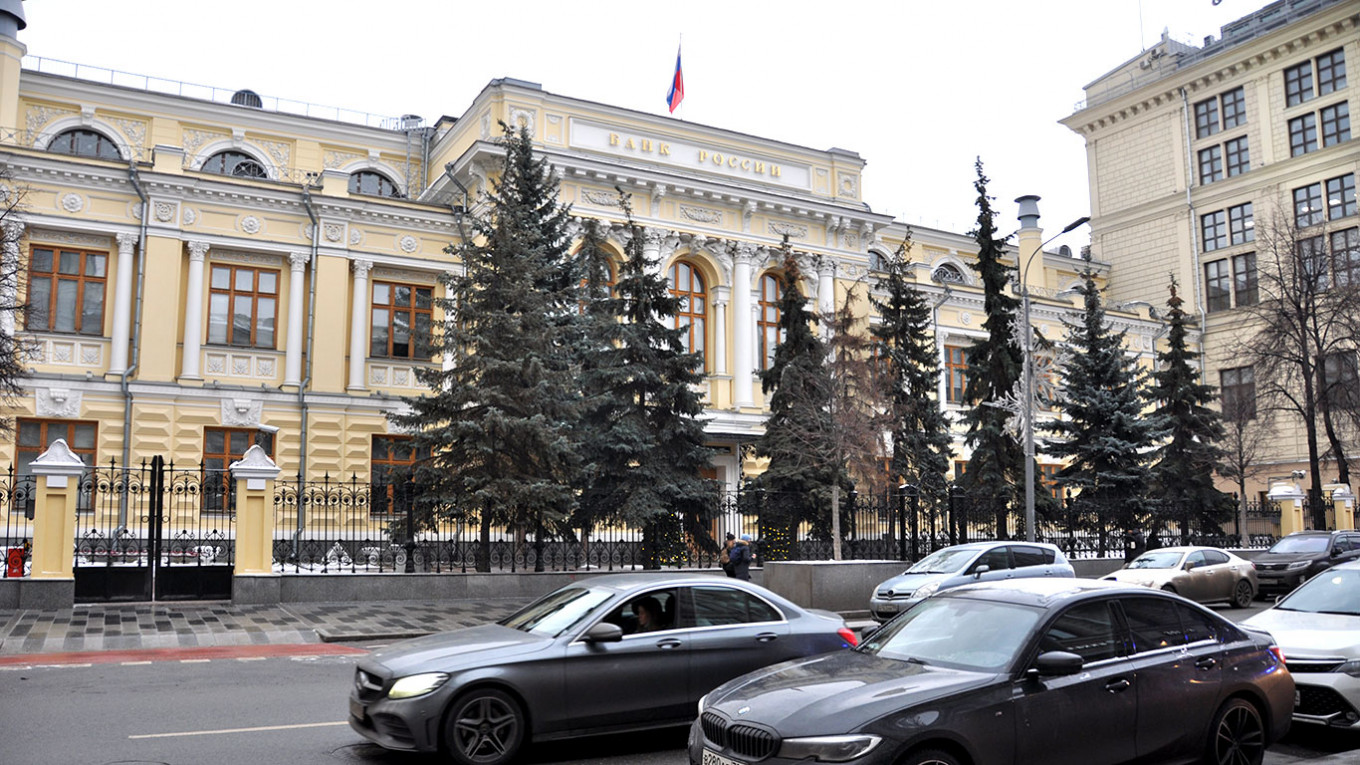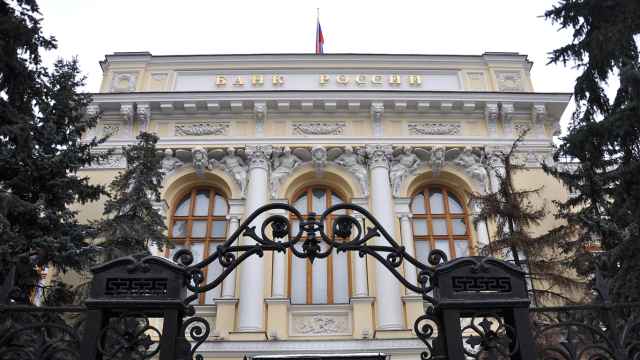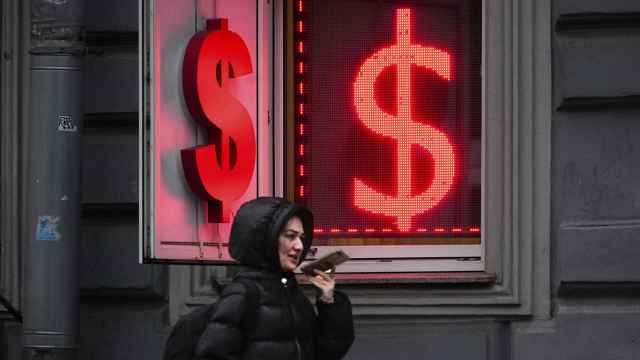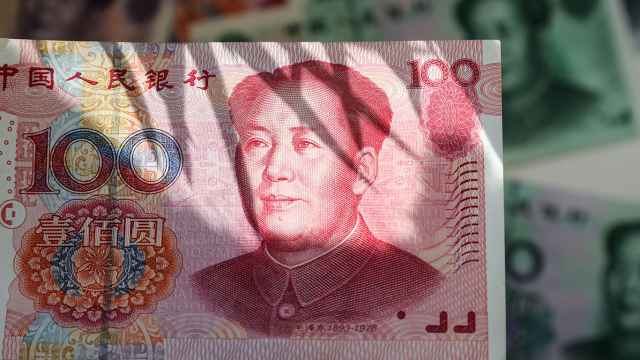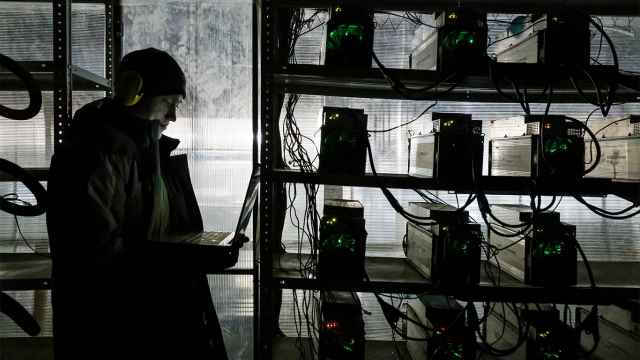Russia’s Central Bank on Tuesday loosened its capital requirements for Russian financial institutions amid extreme market volatility following Moscow’s decision to recognize separatist regions in Eastern Ukraine.
Russia’s financial markets have plunged over the past two days with stocks down by as much as 20% and the ruble having slid past the symbolic level of 80 against the U.S. dollar.
Amid the turmoil, the regulator said Tuesday it will give banks flexibility over how they account for government bonds and other assets on their balance sheets to avoid the need for possible multi-million dollar fundraising to fill the holes left by cratering prices.
Financial institutions will be permitted to calculate their debt-to-capital ratios using asset prices from last week, the bank said, citing “increased volatility” in the aftermath of the Kremlin’s dramatic move to recognize Eastern Ukraine’s breakaway republics and send in troops. The rules will be in force until Oct. 1, and banks will be able to fix prices at Feb. 18 levels.
The Central Bank will also allow financial institutions to use the foreign exchange rate from that day for the purpose of calculating mandatory ratios.
Under both Russian law and international conventions, banks must hold a certain amount of liquid capital to cover short-term debt.
The Central Bank’s latest move to support the financial sector comes as markets plunge amid fears of new Western sanctions.
The dollar-denominated RTS index of leading Russian firms was down 7.2% for the day at noon, while the ruble had depreciated to 80.3 against the dollar and 90.9 against the euro.
The White House responded to the Kremlin’s recognition of the separatist republics by immediately sanctioning the two self-proclaimed governments.
While Washington and other Western governments have yet to announce the full range of sanctions they plan to implement against Moscow, Putin acknowledged the likelihood of severe punitive measures on Monday night, saying that even had Moscow not moved forward with stringent measures “they will be adopted anyway.”
Tuesday’s decision marked the second time since January that the Central Bank has intervened to protect the Russian economy from fallout stemming from the Ukraine crisis.
Last month, the regulator halted its usual purchases of foreign currency on the domestic market.
A Message from The Moscow Times:
Dear readers,
We are facing unprecedented challenges. Russia's Prosecutor General's Office has designated The Moscow Times as an "undesirable" organization, criminalizing our work and putting our staff at risk of prosecution. This follows our earlier unjust labeling as a "foreign agent."
These actions are direct attempts to silence independent journalism in Russia. The authorities claim our work "discredits the decisions of the Russian leadership." We see things differently: we strive to provide accurate, unbiased reporting on Russia.
We, the journalists of The Moscow Times, refuse to be silenced. But to continue our work, we need your help.
Your support, no matter how small, makes a world of difference. If you can, please support us monthly starting from just $2. It's quick to set up, and every contribution makes a significant impact.
By supporting The Moscow Times, you're defending open, independent journalism in the face of repression. Thank you for standing with us.
Remind me later.


